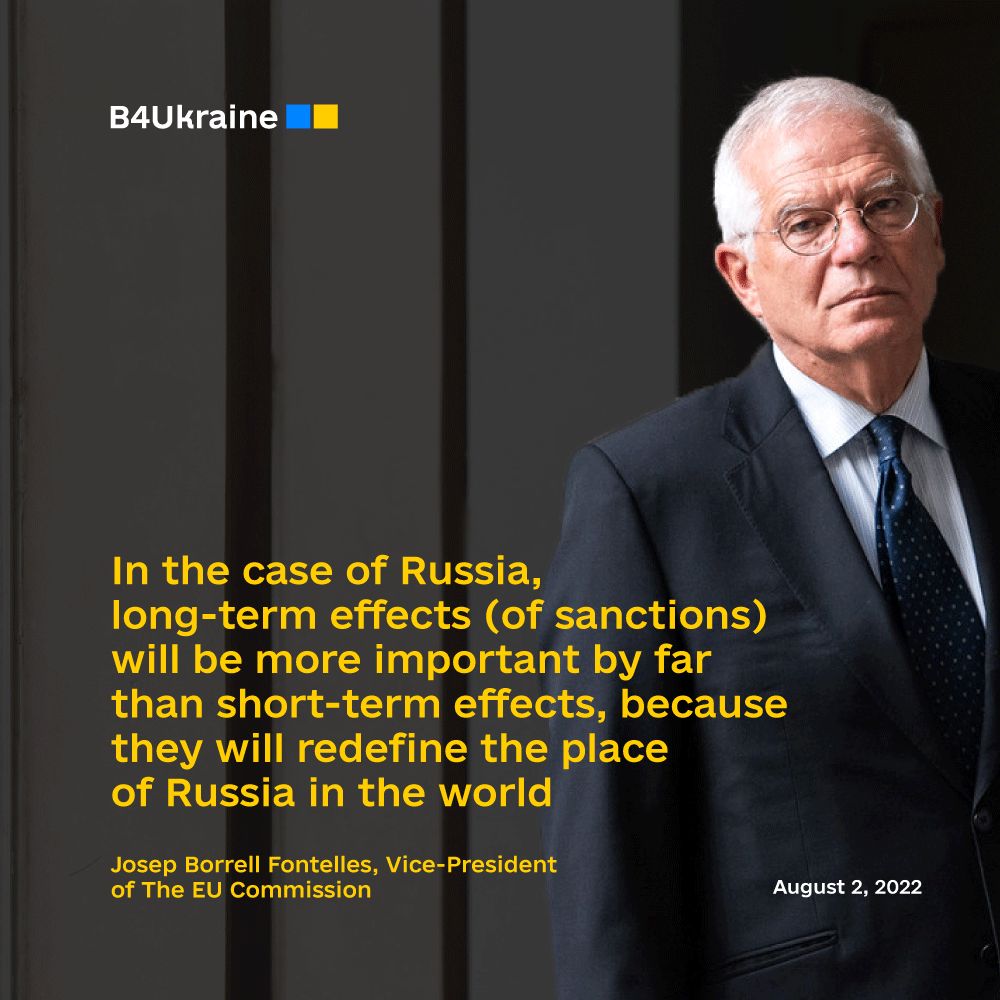
Russia is not only the most sanctioned economy in the world now but it is the first time when a G20 economy is subject to sanctions. The question is: are sanctions effective? To answer it, it is important to take the long view.
As Josep Borrell, EU High Representative for Foreign Affairs and Security Policy and Vice-President of the European Commission, discusses in the paper for Complutense Institute for International Studies, without sanctions Russia would have its cake and eat it. With sanctions, it will be forced to choose between butter and guns until butter is scarce.
“But it is the long-term effects that are the most important as they will redefine the place of Russia in the world,” argues Josep Borrell. “If Russia does not change its behavior, it may survive the sanctions. However, its position within the international system will be deeply affected,” he adds.
Limitations imposed on Russia via six packages of sanctions target some 1 000 individuals and 80 specific entities. Those assets represent almost $14 billion. On top of that, the G7 countries froze $300 billions of Russian central bank assets. Sanctions against Russia are also hurting its trade with non-sanctioning countries, says Borrell. Amazingly, even China is not an exception - the only promising area of Sino-Russian cooperation is energy.
In the long run, sanctions combined with the loss of access to global financial markets, massive withdrawal of foreign companies installed in Russia, the disconnection of Russia from major global research networks such as CERN, and the brain drain will have a huge detrimental effect on Russia.
They will lead to the scientific, economic, and technological isolation of the country. This is an irreparable loss for Russia and the welfare of its people. As a consequence, the Russian economy will face a substantial fall and its capacity to recover will be limited.
Cut off from the western world, Russia will become a Eurasian power with limited bargaining power vis-à-vis China. As Josep Borrell concludes, even if sanctions will not change the Russian trajectory, this does not invalidate their usefulness.
We can already see how they undercut the Russian economy and now they deprive the aggressor country of political leverages, effectively removing Russia from the ranks of global powerhouses. This means that democratic countries should stick to the sanctions and don’t give in to Russian blackmailing aimed at softening any of the imposed restrictions.